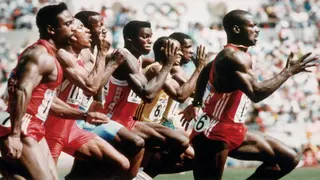A list of athletes who used steroids and got caught: Find out who is on the list
Athletics
Recovery for athletes is as important as physical activity, if not more. Several athletes take their workouts and training sessions seriously, working to maintain a consistent schedule. However, the post-workout routine has numerous benefits to the body and must not be neglected. Read on and discover the importance of taking sufficient time to recover after exercising your body.

Is recovery important for athletes? Medical experts advise at least one recovery day after 7-10 days of active training. Some sports personalities require more depending on the intensity of their physical exercise. Failure to take time out to rest can be detrimental, leading to adverse physical and physiological effects. Why is recovery for athletes essential?
According to the National Centre for Biotechnological Information, recovery after a workout or athletic performance is the period between the end of a session and the return to a recovered state. Recovery refers to the activities that occur after exercise to return the body to a resting state.
A list of athletes who used steroids and got caught: Find out who is on the list
Athletics
Recovery can take a few hours (short-term) or days/weeks (long-term). Short-term recovery includes stretching and the cooling down activities that you do after an intense workout. It involves less engaging physical activity like walking, swimming, or jogging. The goal is to perform a different activity from the one you engaged in during training.

Long-term recovery means that athletes take a few days off their regular routine. The recovery periods are included in their seasonal training schedules and can last between a few days and weeks.
Active recovery increases blood circulation that removes waste products from soft tissue damaged by intense exercise. The fresh blood flows to deliver nutrients that rebuild muscles and ligaments.
Why is recovery important after exercise? While many sportspeople know that a break is necessary after strenuous physical activity, many do not realize its significance in your well-being. Your body repairs itself and rejuvenates during recovery. What are the benefits of recovery training?
Which are some of the most common injuries in basketball?
NBA

Exercise depletes the body's energy stores, also known as muscle glycogen. Recovery time allows the body to naturally replenish the energy stores.
Physical activity stretches and tears the muscles. The recovery period repairs the damaged tissues and muscles. Continuous stretching of the muscles leads to soreness and pain.
Taking time out after a workout helps you re-energize and build energy for the next activity. Recovery promotes blood circulation, relaxing your mind and giving you better sleep. Recovery also helps to prevent injuries because your body will always be in its optimal state.

Lack of proper rest and recovery for athletes can lead to overtraining, a state where your body cannot keep up with all the activity you are asking it to do. What are the symptoms of overtraining?
Ranked! Top 10 most dangerous sports to play at the moment
Other Sports
Medical professionals say muscle repair, regeneration, and growth happen when you sleep. Getting eight or more hours of sleep is advisable to reduce the risk of injury, maintain a healthy immune system, and keep your focus and concentration.
Sleep deprivation among athletes causes hormonal imbalance and the production of high levels of cortisol, a stress hormone and a decrease in the human growth hormone, which is active during tissue repair. Ultimately, sleep-deprived athletes become agitated and have low energy, which makes them averse to injuries.

The quality of sleep is as important as its quantity. Experts recommend avoiding screens (TV, computer, or phone) before you sleep. Athletes must establish a healthy sleep routine to ensure adequate rest and recovery. Besides sleep, other ways to enhance your recovery are:
How many sports are there in the world? A list of all sports and games
Other Sports
While active recovery involves moving the body on a lighter scale, passive recovery gives the body a complete break with little or no exertion. Passive recovery allows your muscles to repair themselves and gives you a mental break. During passive recovery, you can try relaxation techniques like a massage or steam bath.

Passive recovery is recommended for athletes experiencing fatigue and helps to improve performance. The best way to know when to go for passive recovery is by listening to your body and stopping when you need to take time out.
What is the best recovery for athletes? There are different ways to recover depending on your age, sport, and training intensity. During recovery, the body adapts to the stress of the exercise. As you continue to work out, take time often to rest and regain the lost energy.
READ ALSO: What are the different types of Pilates?
What are extreme sports? A list of all extreme sports played around the world
Other Sports
Sports Brief published the different types of Pilates you can use for exercise. Invented by Joseph Pilates in 1929, this form of exercise can be practised at home or in the gym. They help to lose weight and improve general mental and physical strength. What are the different types of Pilates?
Mat Pilates is ideal for beginners and does not require any equipment. Classical Pilates is more advanced and is recommended for patients going through rehabilitation, post and pre-natal clients. Check out the above article for the different types of Pilates and how to use them.